Related Research Articles

Amos Oz was an Israeli writer, novelist, journalist, and intellectual. He was also a professor of Hebrew literature at Ben-Gurion University of the Negev. From 1967 onwards, Oz was a prominent advocate of a two-state solution to the Israeli–Palestinian conflict.

Yosef Haim Brenner was a Hebrew-language author from the Russian Empire, and one of the pioneers of modern Hebrew literature.

David Grossman is an Israeli author. His books have been translated into more than 30 languages.

Avraham Shlonsky was an Israeli poet and editor born in the Russian Empire.
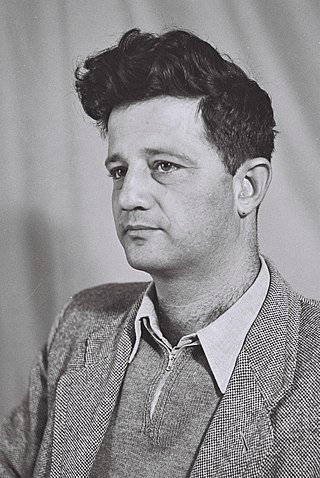
Yizhar Smilansky, known by his pen name S. Yizhar, was an Israeli writer and politician. Widely regarded as one of the preeminent figures in Israeli literature, he was awarded the Israel Prize in 1959 for fine literature. He was also awarded several other prizes of national distinction. In his political life, Yizhar served in the Knesset under Mapai almost continuously from 1949–1967.

Roy "Chicky" Arad is an Israeli poet, singer, script-writer, artist, and political activist. Arad is the founder and former editor of Maayan magazine for poetry and a former journalist for Haaretz.

Agi Mishol is an Israeli poet. Mishol's work has been published in several languages, and has won various awards including the Zbigniew Herbert International Literary Award and the Yehuda Amichai prize for literature.
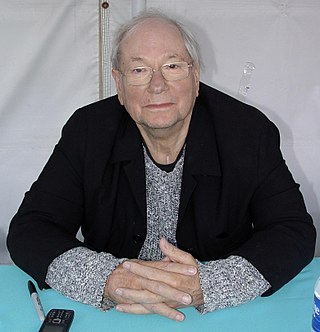
Yoram Kaniuk was an Israeli writer, painter, journalist, and theatre critic.

Ron Leshem, is an Israeli-American television writer and producer, best known for serving as executive producer on HBO's Euphoria, and for the film Beaufort, which was nominated for the Academy Award for Best Foreign Language Film. He co-created and wrote the television series No Man's Land (Hulu), Valley of Tears, Euphoria, The Gordin Cell, and the film Incitement, in addition to his career as a television executive. As a novelist, he has won some of "the top Israeli literary awards," among them the prestigious annual Sapir Prize for Literature in 2006.
The Sapir Prize for Literature of Israel is a prestigious annual literary award presented for a work of literature in the Hebrew language. The prize is awarded by Mifal HaPayis, and is a part of the organization's cultural initiatives. It bears the name of the late Pinhas Sapir, a former Finance Minister of Israel, and was first awarded in 2000.

Aharon Amir was an Israeli Hebrew poet, a literary translator and a writer.
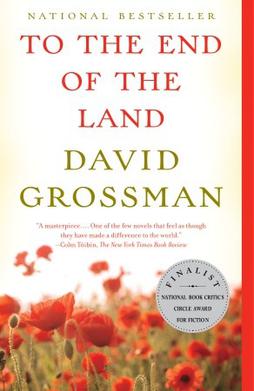
To the End of the Land is a 2008 novel by Israeli writer David Grossman depicting the emotional strains that family members of soldiers experience when their loved ones are deployed into combat. Grossman began writing the novel in May 2003 when his oldest son Yonatan was serving in the Israeli Defense Forces and the book was largely completed by August 2006 when his younger son Uri was killed in the Second Lebanon War.

Yael Neeman, is an Israeli author.

Miriam Roth was a preeminent pioneer of Israeli preschool education, author and scholar of children's literature, with a long career as a kindergarten teacher and educator. Many of the children's books she wrote became Israeli best-selling classics.
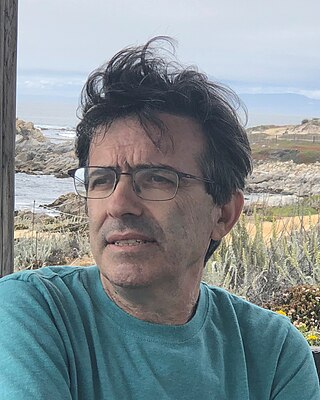
Reviel Netz is an Israeli scholar of the history of pre-modern mathematics, who is currently a professor of classics and of philosophy at Stanford University.
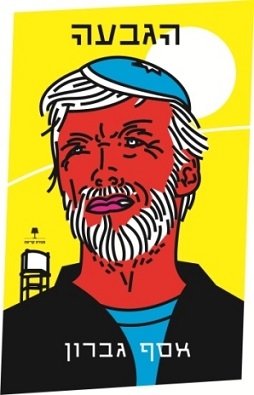
The Hilltop is a 2013 Israeli novel by Assaf Gavron. The novel was "an Israeli best-seller and prize-winner."

All the Rivers (Initially referred to as Borderlife, is a 2014 novel written by Israeli author Dorit Rabinyan, published by Am Oved in May 2014. The book's English-language edition was translated by Jessica Cohen and published by Random House in the United States and by Serpent's Tail in the United Kingdom, both in 2017. It is considered a controversial book in Israel.

Yehudit Hendel was an award-winning Israeli author. She wrote novels, short stories, and non-fiction.

Edna Shemesh is an Israeli novelist, short story writer, translator, book reviewer, former journalist and independent editor.

Amir Gutfreund was an Israeli writer and columnist for the Maariv newspaper.
References
- ↑ "7 Israeli writers to watch". jta.org. September 9, 2015. Retrieved October 20, 2016.
- ↑ "Reader, I Adopted Him". Jewish Review of Books. 28 December 2015.
- ↑ "Visiting Scholars and Postdocs | Taube Center for Jewish Studies".
- ↑ "From "Seven Moral Failings", translated by Jeffrey M. Green". Words without Borders Magazine. January 2008.
- ↑ "The Writer, Herself and I". Haaretz. 3 January 2010.
- ↑ "Omsk, translated by Jessica Cohen". Jewish Fiction.net. 2013.
- ↑ "Reader, I Adopted Him". Jewish Review of Books. 28 December 2015.
- ↑ "An Israeli Author's Manual for Writing an Agatha Christie-type Crime Novel". Haaretz. 15 October 2016.
- ↑ "The Hebrew Teacher". www.newvesselpress.com. Retrieved 2023-06-27.